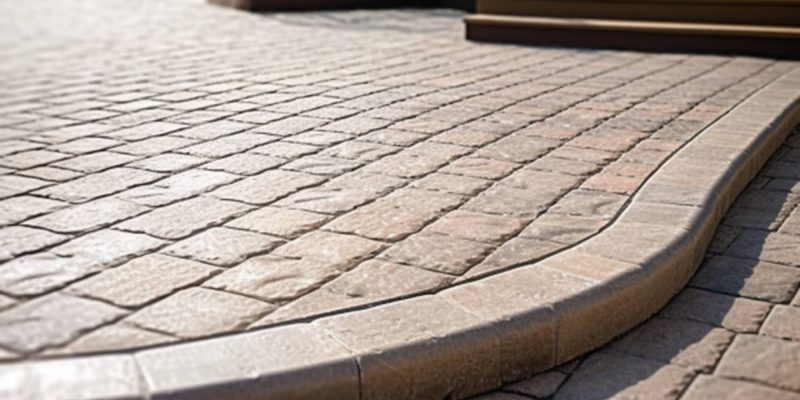A patio that cracks or sinks is a major headache. That’s why concrete thickness is crucial when pouring a durable, long-lasting outdoor living space. This article provides slab thickness guidance tailored to Des Moines homeowners so you can make an informed decision.
Why Thickness Matters
Concrete patio slab thickness directly relates to overall strength and resistance to cracking over time. A thicker slab has increased structural integrity to withstand the soil pressures and dynamic loads like people, furniture, even vehicles that patios endure. Generally, a 4-inch thick concrete pad provides adequate durability for standard residential foot traffic and patio uses. However, large parties or heavy items like hot tubs require a thicker slab rated for the additional weight.
It’s important to note that your local building codes provide a baseline thickness requirement for concrete patios in Des Moines. While the International Residential Code sets a 4-inch minimum, local authorities can mandate slightly different standards. Checking in on the specific patio regulations is an important first step before you break ground.
Determining Appropriate Thickness
While patio uses vary, there are some general thickness guidelines to inform your planning:
Standard Residential Patios: 4-6 inches provides flexibility for typical patio furniture, grills and gatherings with some durability buffer built in. Compacting the soil properly is especially important with thinner patio slabs.
Driveways/RV Parking Areas: 5-6 inches accommodates heavier vehicles while resisting gradual settlement cracks over years of use. Wire mesh or rebar reinforcement is also advised.
Puddled Concrete: 6-8 inches. Puddling involves pouring a thicker center layer to pitch the surface for drainage. The increased depth makes for a sturdy, resilient patio.
Incorporating Features: Plan for 8-12 inch slab sections where built-in benches, pillars, and other permanent structures adjoin the patio. Their weight bears directly on the slab below and demands extra thickness.
TIP
Additionally, the consistency of your substrate matters greatly. Compacted crusher run stone makes an ideal base, preventing ground movement from causing cracks. Poorly draining or unstable soils may also need an engineered slab design drawing or thicker stone cushion to strengthen the foundation. And on steeply sloped sites, a stepped footer matching the grade changes enhances stability.
Base Preparation Best Practices
Proper base preparation sets the stage for patio success. Excavate existing topsoil to a depth that accommodates your planned gravel layer and 4-6 inch concrete pour. Establish consistent depth across the entire area, allowing for any increases where adjoining structures require. Compact the exposed subgrade with equipment like a plate compactor or jumping jack to minimize settling ahead of the patio pour.
Next, fill with a 4-6 inch layer of compactible 57 stone, also called crusher run. Redistribute and make level. Compacting these angular gravel fragments again makes for a flat, stable subbase. For improved drainage or unstable soils, consider a 4-6 inch clean rock base beneath the crusher run instead.
Reinforcement Options
Reinforcing your concrete slab controls random cracking. Welded wire mesh made of 6 gauge wire in a 6 inch grid pattern provides effective crack resistance. For maximum sturdiness to support heavier loads, a rebar grid of #4 (1/2 inch) or #5 bars on 12 inch centers running both directions is ideal. Consult your local concrete contractor on the best reinforcement approach based on your patio plans.
Concrete Mix Considerations
Concrete’s compressive strength is measured in its PSI rating, reflecting the density and durability it provides. Here are typical specifications:
3,000 PSI – Standard for residential applications like patios and sidewalks. This conventional concrete strikes an affordability and performance balance.
3,500 PSI – Enhances strength for heavier loads from multiple vehicles. Provides increased confidence for draining driveways.
4,000 PSI – Used where equipment mounts directly to concrete slabs indoors, like production floors. Overkill for patio purposes.
Pre-blended bag mixes dial in reliable results, albeit at a premium cost. For sizable patios, consider ordering ready mix concrete delivered or mixing your own batched blend for greater savings. Your local Des Moines contractor can advise on optimal concrete specifications too.

